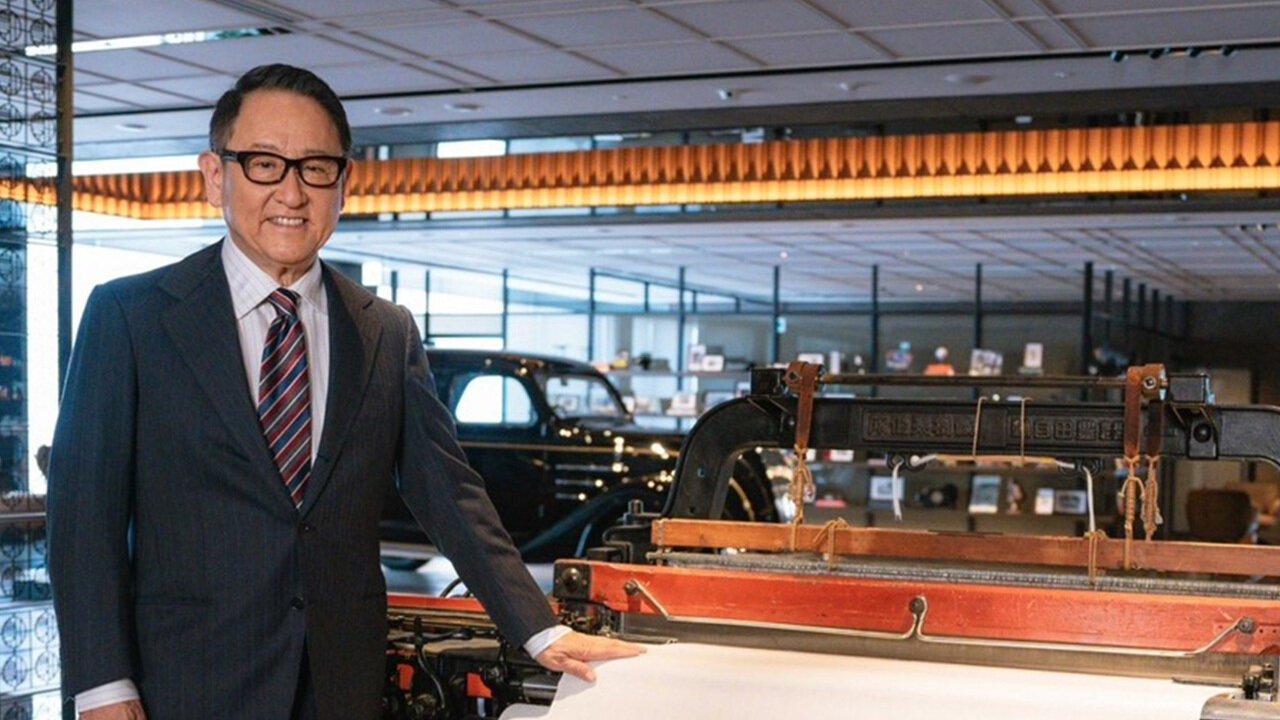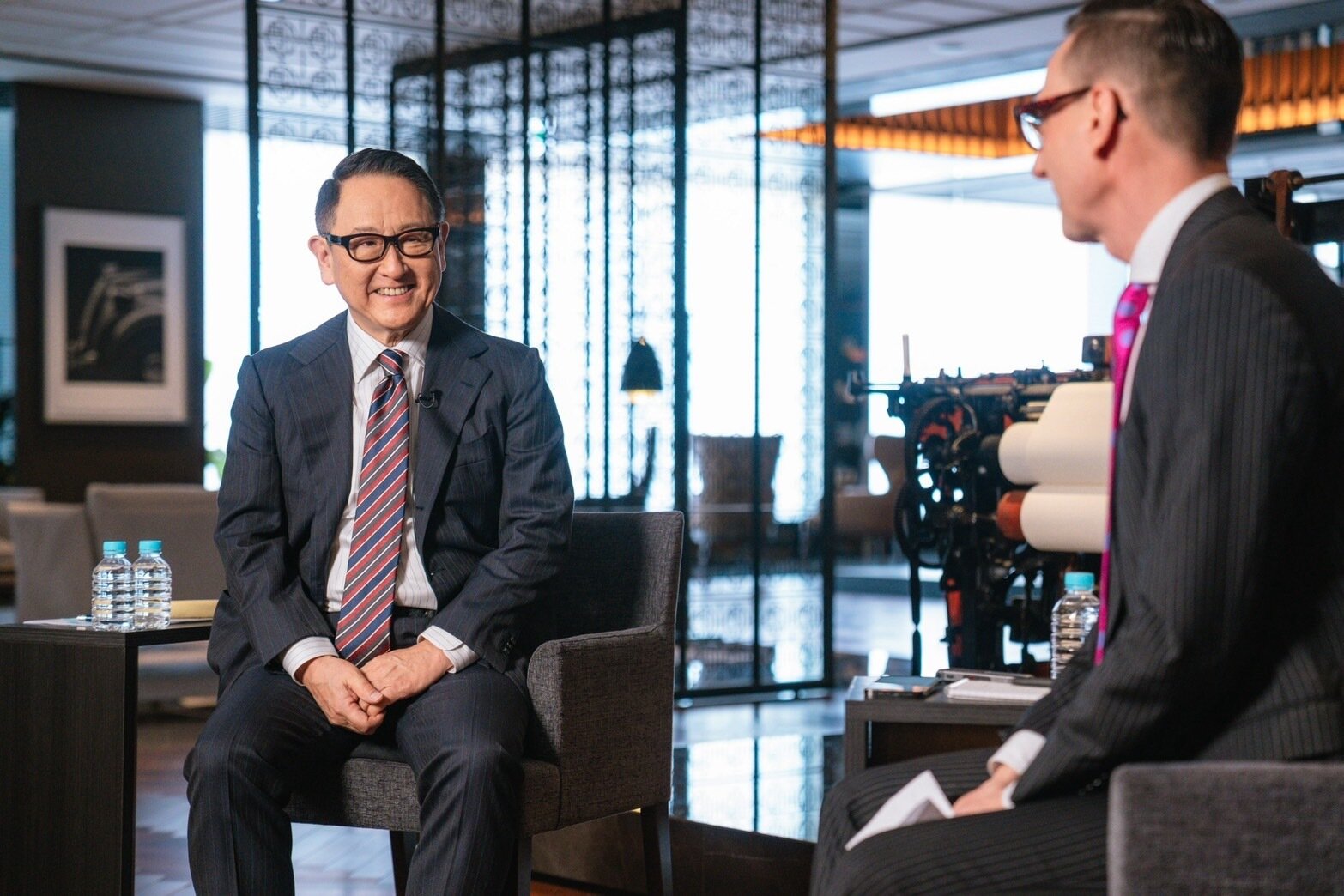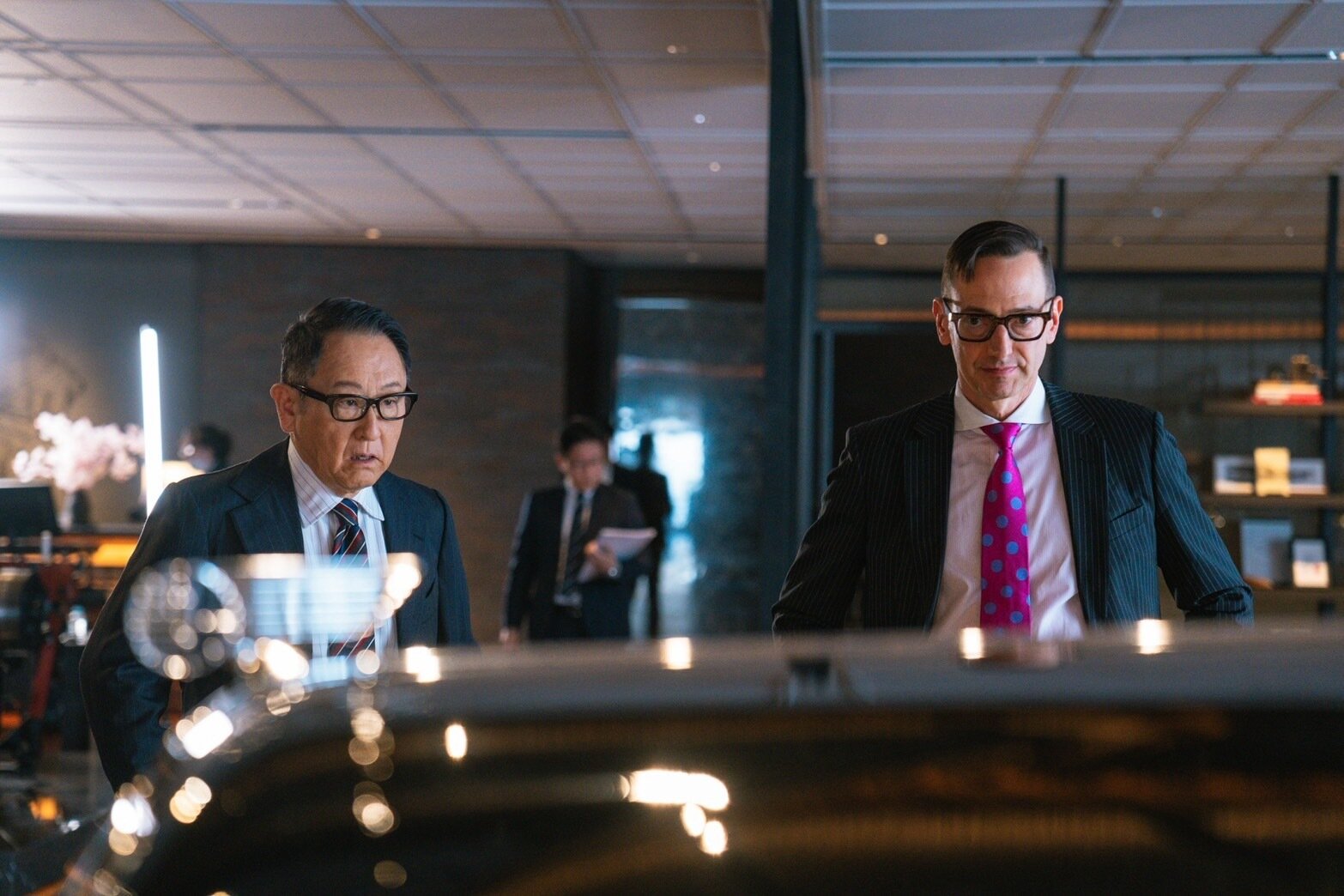
In April, Automotive News featured a special interview with Chairman Akio Toyoda. He spoke about the Toyota DNA passed down from his great-grandfather Sakichi, the hardships faced during his presidency, and his thoughts on the next generation.
A moment that didn’t make the original article

Automotive News composed that article from the Chairman’s responses to questions, and it also published a separate interview piece in traditional Q&A format. This one touches on topics left out of the article above, from the relationship between Toyota and the Toyoda family to Akio’s thoughts on battery EVs.
[Automotive News Q&A] Empathy, cooperation, and mutual gratitude
Toyota Motor Corp. Chairman Akio Toyoda sat down with Asia Editor Hans Greimel to represent the Toyoda family as a recipient of the Automotive News Centennial Award. The longtime industry leader, who assumed the helm of the dynasty’s namesake automaker in 2009, reflected last month on a range of topics, from the legacy of his forefathers and the family’s future role at the Japanese company to his forecasts for electric sports cars.
Here are edited excerpts.
――What are key turning points in the Toyoda family’s contribution to the global auto industry?
Chairman Toyoda
The start is perhaps when Sakichi Toyoda was born. Sakichi was my great-grandfather. He was born a carpenter’s son, and he was only able to go to elementary school.
During his childhood, Western countries were rapidly industrializing. Looking at the situation, he felt really worried that maybe Japan would be left behind.
He also watched his mother work very hard to support the family. She worked all day supporting her husband in carpentry and on the farm. Then at night, she did weaving at home. Sakichi saw his mother working every waking hour. He wanted to make his mother’s life easier.
Sakichi’s thinking like this was probably the very source of how Toyota began.
――How did that lead to the Toyota of today?
From there, he started his inventions, and in the end, it resulted in the Type G automatic loom. Mass production began in 1925.
In the U.S., cars were already popular and there were about 3 million cars produced in the U.S. and running on the roads. But Toyota the car company didn’t even exist.
My father, Shoichiro, was born that year. And that’s the year Automotive News started.
So that’s a game changer as well, right? We can say 1925 was a special year not just for Automotive News, but also for Toyota Motor. It was a very significant year, and probably a game-changer year.
――And what about cars?

There was a big model change for the business, from the automatic loom business to cars in the late 1930s. That transition was led by my grandfather, Kiichiro Toyoda, and later generations. This would be the second game changer for us, the major model change to a car company.
――What have been your biggest challenges as leader of Toyota?
When I joined Toyota, I didn’t feel very welcome in the company. I’m here because I just continued to live every day, making efforts to someday be a person the company found necessary. My efforts were not just for the company, but I endeavored so that someday the auto industry can also say I have been a necessary person.
I am the third-generation family leader. In Japan, it is often said the third generation will either further develop the company or bankrupt it.
Given the inheritance of corporate capital, each generation inherits less and less capital. So, by the time it reaches the third generation, there is almost no ownership by the family. I am not a capital investor or contributor in terms of capital to this company. So there were people inside of the organization who weren’t happy to see me at the top.
――How will the Toyoda family continue its involvement in the company?
First, we put importance on whether we share the philosophy or company values. And then, there are the skills that a person needs to work in the auto industry, to conduct the auto business. And then, there is the appropriate conduct or behavior expected from a person at Toyota.
These three things are inherited from inside the company, and I am a person who has been educated in them by various people as I grew up. So, I believe these three things created by Toyota — the philosophy, skills and conduct —have become my weapons.
The only important thing about being a Toyoda is that the cars bear the family name. I think it meant something when I went to the Congressional hearing right after I became president and said, “Every car has my name on it,” because I’m the one who said it. When you manage a company, there are good times and not-so-good times. But there are moments when what is important is who said it rather than what is said. It can have the power to move things.
What is important is not the founding family versus the non-Toyoda name, but utilizing the strengths of all of us, to empathize, cooperate and appreciate each other for the sake of the automobile industry and Toyota. Thinking about future generations that bear the family name, and for me working at the company now, the role we have is one that opens the door to people, to stakeholders, so they feel that if they speak to us, they will be heard.

